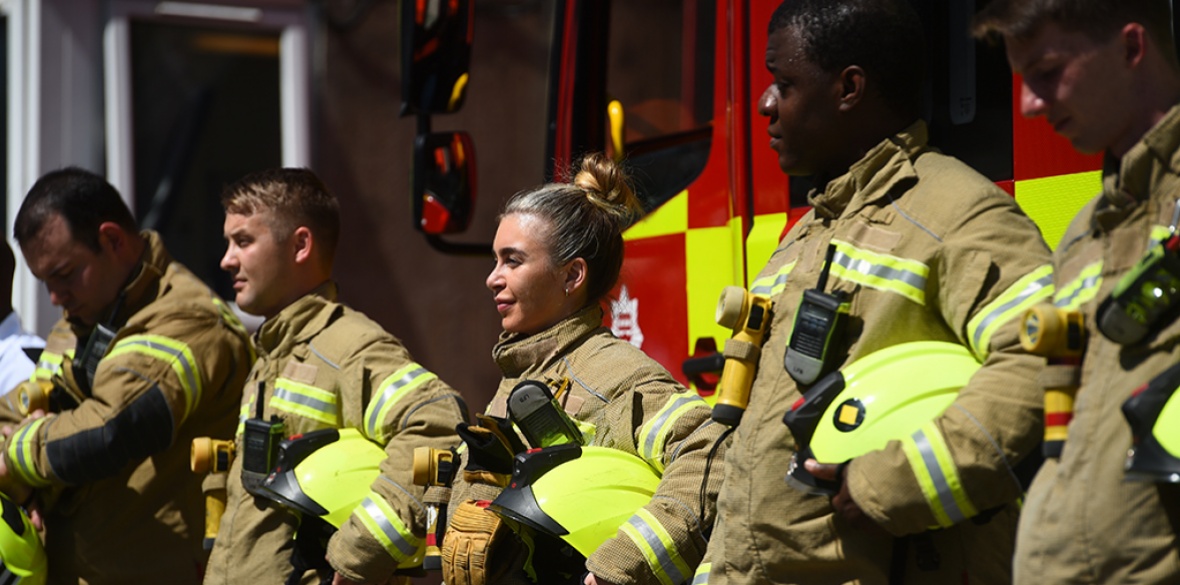This is the last article you can read this month
You can read more article this month
You can read more articles this month
Sorry your limit is up for this month
Reset on:
Please help support the Morning Star by subscribing here
FOUR years ago, the Tory-Lib Dem government passed the 2016 Trade Union Act.
Despite important concessions won by our movement, the law brought in draconian restrictions on the rights of workers and their unions.
It was the latest in a long line of attacks from Tory governments — attacks that, for 13 years of government, New Labour kept on the statute books.
But, to the Tories and the ruling class, their work has just begun — and with each new Conservative prime minister, a fresh wave of attacks soon loom.
That much was clear when, in December’s general election, Boris Johnson threatened our transport worker comrades with “minimum servicing agreements,” a brazen attempt to undermine the effectiveness of industrial action.
Likewise, after months of faint praise for key workers, the government and the right-wing press have vilified teachers and their unions for the crime of demanding safe schools.
In January of this year, Her Majesty’s Inspectorate of Constabulary and Fire and Rescue Services issued its first annual report.
After more than a decade without independent inspections, when the Fire Brigades Union (FBU) was often the sole voice defending standards in the fire and rescue service, the inspectorate chose to make a highly politicised attack on our union.
The chief inspector, Thomas Winsor, claimed the FBU’s influence “goes too far and is sometimes contrary to the public interest” and baselessly accused us of putting public safety in “peril.”
His solution? To attack our collective bargaining arrangements and recommend an “independent” pay review body be imposed on firefighters and control staff.
We’ve seen how unions in other sectors have had their wings clipped by pay review bodies.
While collective bargaining has not always delivered the pay rises firefighters deserve, they have had more of a voice at the National Joint Council, where the FBU and fire service employers negotiate pay, than they would in a submission to a so-called “independent” body.
Additionally, as noted in Motion 01, Covid-19 and the Fire and Rescue Service, collective bargaining was fundamental in helping to shape and deliver an effective national firefighter response to Covid-19.
When coronavirus took hold in our NHS and our health and social care colleagues were up against it, firefighters stepped up to help.
They have moved the deceased to mortuaries; delivered food, medicines and PPE; driven ambulances; assembled and face-fitted masks; and more besides.
But they weren’t thrown defenceless into the front line by government — it was a safe, negotiated intervention, jointly co-ordinated by the FBU, fire chiefs and fire service employers.
That allowed us to insist on the strictest health and safety terms, ensuring activities were properly risk assessed.
And, from the outset, we made sure that all non-essential, non-emergency work was paused to limit cross-contamination between firefighters and the public.
When issues arose in individual brigades, we had a clear process through which to raise our concerns — and, with tens of thousands of firefighters and control staff behind us, a clear mandate to demand that they be addressed.
Firefighters and control staff have made it through the first wave of the coronavirus pandemic and, like our comrades in other unions, can be proud that we have done our bit for our communities during this crisis.
But they have done so safely, with a response negotiated through collective bargaining.
Across the world, there have been a number of tragic firefighter Covid-19 deaths — and we have seen too many of our brave comrades in other sectors lose their lives.
While there have been isolated outbreaks in some UK fire and rescue services, the FBU is not aware of any currently serving UK firefighter who has died from coronavirus.
If we are to change society for the better after this pandemic, we must defend the few processes and structures in our current system that deliver for workers.
Collective action is a central pillar of our movement — and we must rally together to condemn any attempt to undermine it.
Every Tory government has attacked our movement and the first major assaults of Boris Johnson’s premiership are already brewing.
We know their tactics and we must be ready, but the first step begins at this virtual Congress, with a clear vote in favour of Motion 59, Defend National Collective Bargaining in the Fire and Rescue Service.
Today, we must tell Downing Street that collective bargaining works — and we’ll fight any attempt to undermine it.










